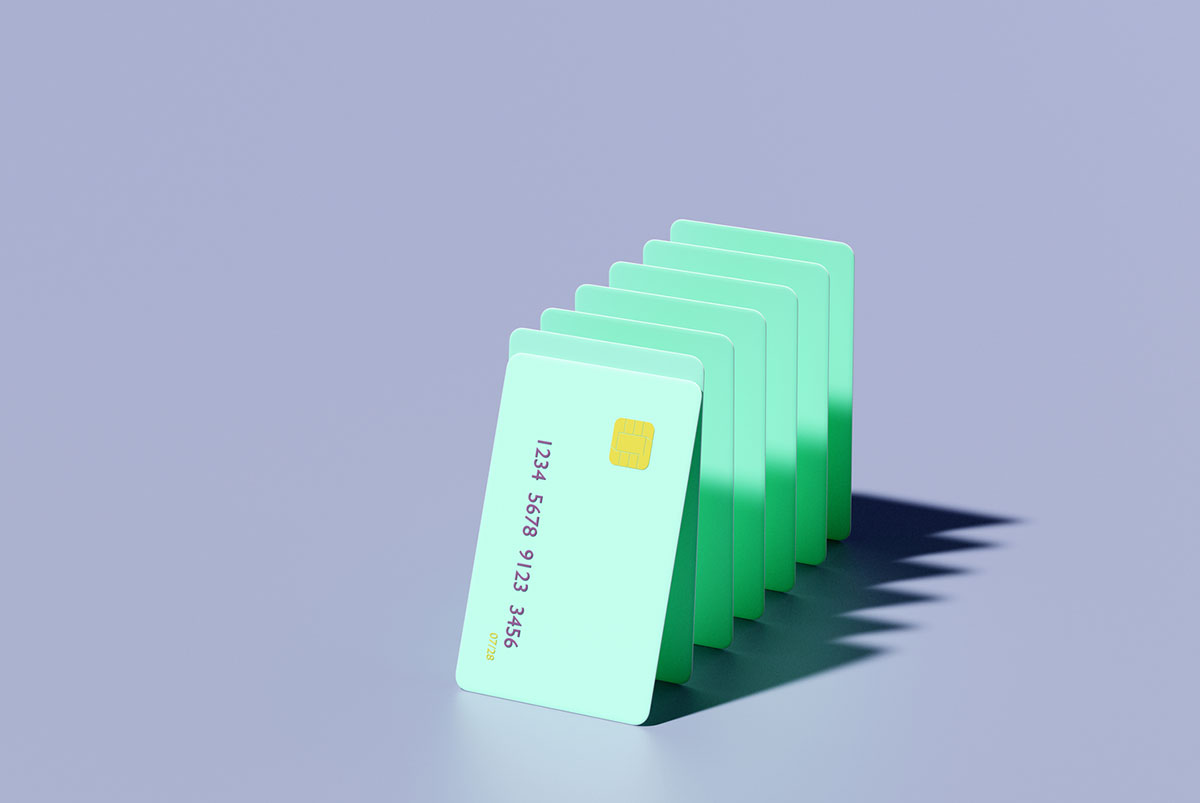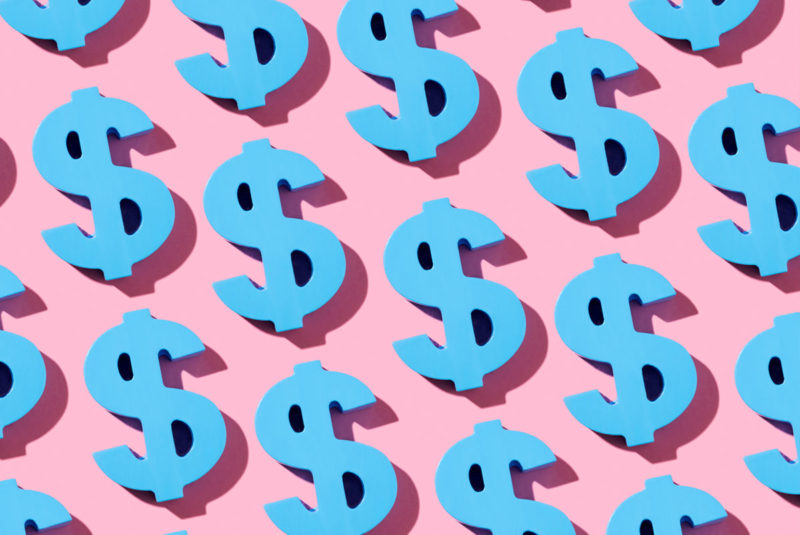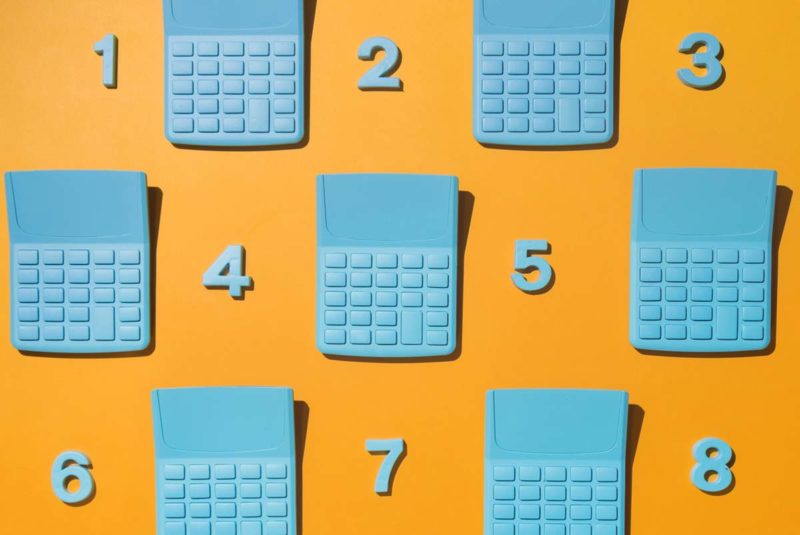Explore your mortgage options
Are you struggling to keep track of multiple debt payments? Managing the balances, due dates and required minimum payments for multiple credit cards, auto loans, personal loans or any other kind of debt can be extremely difficult.
Thankfully, debt consolidation can turn these confusing payments into one, easy-to-manage payment. But what is debt consolidation? Find out below.
Existing Debt Got You Down?
Let Rocket LoansSM help you with a debt consolidation loan. With same-day funding options, you can get back on track fast.
Checking your options won’t affect your credit score.
Debt Consolidation Defined
Debt consolidation is when you combine several sources of debt into one loan with a single, easy-to-manage debt payment. This tactic is best if you have several sources of high-interest debt, such as credit card debt, that you can consolidate into a loan with a lower interest rate.
The type of loan you use to consolidate your debt will depend on the types of debt you have. For example, you can use a personal loan to consolidate several sources of credit card debt. Some loans may require that you only consolidate one type of debt (such as balance transfer credit cards) while others may allow you to consolidate several types, such as credit card debt and auto loan debt.
We’ll get into the different types of debt consolidation loans – and what you can do with them – later on.
How does debt consolidation work?
Debt consolidation works by using the proceeds from one loan to pay off the balances of several other sources of debt. Ideally, the new loan will have a much lower interest rate than the former sources of debt so that you can pay less each month to pay off the same balance amount.
For example, let’s say you have the following sources of debt:
- Credit card A with a $5,000 balance with a 22% interest rate
- Credit card B with a $10,000 balance with a 26% interest rate
- Credit card C with a $2,500 balance with a 20% interest rate
Using the formula below, you can calculate the blended interest rate for all of these credit cards combined:
(Balance 1 × Interest Rate 1) + (Balance 2 × Interest Rate 2) + (Balance 3 × Interest Rate 3)
_____________________________________________________________________
Sum of All Balances
For this example, the blended rate of your credit card debt is 24%. Now that you know this number, you can search for a debt consolidation loan with a lower interest rate than 24% and a loan amount large enough to pay off the sum of all of your balances, which is $17,500 in this situation.
Once you use the debt consolidation loan proceeds to pay off the multiple sources of debt, you have just one debt payment on one loan to worry about.
The Pros and Cons of Debt Consolidation
Debt consolidation has many advantages but also some downsides that you should consider before signing up for more debt.
Pros
The main pros of debt consolidation are the single source of debt and the lower monthly payments required to reduce outstanding debts. Before debt consolidation, you have to worry about keeping track of debt with different lenders, payment amounts and due dates. This can be extremely stressful and hard to manage.
After debt consolidation, you just have to focus on paying one debt payment per month. Since that debt payment hopefully has a lower interest rate, you will pay less every month than you did before consolidating your debt.
Cons
Debt consolidation is not a perfect solution to all of your debt problems. Fees on your debt consolidation loan can add to your financial hardship right off the bat, so you will need to ensure you have the cash available to qualify for the loan. Also, debt consolidation loans often extend the repayment period for your debt. So while you may pay less every month to pay down your debt, you will need to make those payments for a longer period of time – sometimes forcing you to pay more interest overall.
However, the ultimate downside to debt consolidation is that it does not address the primary cause of your debt. If you continue to take on debt by spending more than your income, you will soon have to face overwhelming debt from multiple sources again.
Types of Debt Consolidation Loans
Below are some of the most popular debt consolidation loans.
Personal loans
If you use a personal loan to consolidate debt, you can get a lump sum payment at a fixed interest rate to pay down all other sources of your debt. Before applying, it’s important to confirm with your lender how the disbursement of the loan will work. Some personal loans will provide the money directly to you, making you responsible for using the proceeds to pay off your other sources of debt. Other specific debt consolidation loans will make the payments directly to your other sources of debt, leaving you only responsible for paying off the one remaining personal loan.
One pro of using a personal loan to consolidate debt is that they are typically unsecured loans, meaning that you don’t have to provide any valuable assets as collateral to receive the loans. However, it may be hard to qualify for a personal loan amount large enough to cover all of your debt.
Balance transfer cards
Balance transfer cards offer a unique opportunity to consolidate your credit card debt with another credit card. The name describes how this tactic works. You can transfer the balances of one or several credit cards to a new credit card with a lower interest rate.
Some balance transfer credit cards offer 0% APR for a limited time at the beginning of the term. This allows you to put a pause on your interest payments and gives you a chance to pay off the balance before you have to start paying interest again.
On the downside, balance transfers often come with upfront fees. Typically, these come out to between 2% and 5% of the balance transferred to the card.
Home equity loans
You may be able to use a home equity loan to consolidate debt if you have a considerable amount of equity built up. A type of second mortgage, home equity loans work by exchanging a portion of the equity you have in your home for a lump sum payment that you pay off with fixed monthly payments over a period of years.
Since you may have hundreds of thousands of dollars in equity in your home, this can be a great strategy if you need a large loan to pay off all of your existing balances. However, you can’t forget about the ultimate downside to utilizing your home equity: If you fail to make payments on the loan, you risk losing your home to foreclosure.
Home equity lines of credit (HELOCs)
Home equity lines of credit (HELOCs) are similar to home equity loans in that they are a type of second mortgage that utilizes your home equity. But instead of a lump sum payment, you get access to a line of credit that you can withdraw from up to a credit limit. After your withdrawal period, you enter the repayment period when you must make variable-interest payments on only the money that you decided to withdraw.
HELOCs can be a great tool to use if you are not sure how much money you need to consolidate your debt and would like flexibility with how much money you borrow. However, they also carry the same risk as home equity loans. If you fail to repay a HELOC, you risk losing your home.
Cash-Out Refinancing
Using a refinance to consolidate debt is a great option if you’d like to avoid having multiple mortgage payments after getting rid of multiple sources of other types of debt. Instead of taking out a second mortgage like the previous two examples, a cash-out refinance allows you to pay off your current mortgage, exchange a portion of your equity for cash, and then sign a new, larger mortgage loan. This can leave you with a considerable amount of cash to pay off your debt and just one mortgage payment to manage.
The main downside is that since you took out a larger loan on your home, you will pay more in interest over time and still risk losing your home if you can’t make those extended payments.
Is Debt Consolidation a Good Idea?
Debt consolidation is not for everyone. Consider the scenarios below to determine whether it is right for your financial situation.
When should you use a debt consolidation loan?
- When you have high-interest debt: If you have high-interest debt, such as credit card debt, debt consolidation can give you a lower interest rate and lower monthly payments.
- When you want a single monthly payment: Debt consolidation allows you to reorganize your debt from multiple sources that can be confusing and difficult to keep track of into one, easy-to-manage payment.
When should you not use a debt consolidation loan?
- When you don’t have good credit: Debt consolidation loans generally require a good credit score to qualify. If you have a checkered credit history, focus on chipping away at your debt with on-time payments to build your score to a level that gives you access to a debt consolidation loan.
- When you haven’t solved the cause of the debt: Remember that a debt consolidation loan is not a universal solution to your debt problems. If you continue spending above your means, not even a debt consolidation loan can help you in the long run.
Final Thoughts on Debt Consolidation
It is important to remember that debt consolidation does not decrease the amount of debt you have – it increases it by taking out another loan. However, with just one debt payment to focus on at a lower interest rate, your debt is easier to manage both logistically and financially.
Ready To Reduce Your Existing Debt?
A debt consolidation loan from Rocket LoansSM can be the game-changer in making that possible. Take back control of your existing debt.
Checking your options won’t affect your credit score.
The Short Version
- Debt consolidation allows you to combine several sources of high-interest debt into one debt payment with a lower interest rate
- The pros of debt consolidation include finances that are easier to manage and lower monthly debt payments
- Debt consolidation does not fix the issue of overspending that may have caused your debt problems




